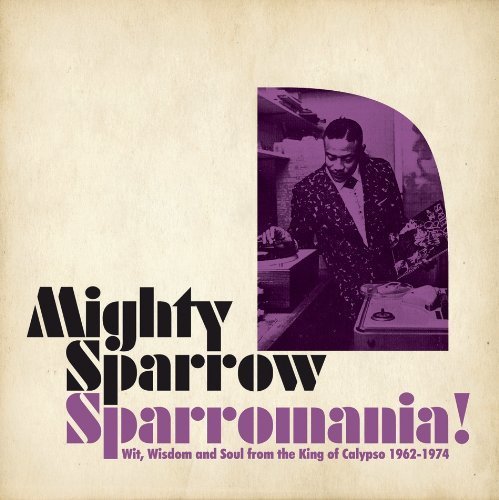
Mighty Sparrow
Sparrowmania!
Release Date: Jan 24, 2012
Genre(s): Jazz, Reggae, Pop/Rock, International, Post-Bop, Calypso, Caribbean Traditions, Party Soca, Soca
Record label: Strut
Music Critic Score
How the Music Critic Score works
Buy Sparrowmania! from Amazon
Album Review: Sparrowmania! by Mighty Sparrow
Very Good, Based on 4 Critics
Based on rating 5/5
Harry Belafonte made calypso briefly popular in1950s America, but Trinidad’s Mighty Sparrow wasits sharpest-tongued golden-age singer. This tour of his 1960-76 output has too many novelties and covers – stick with Louis Jordan’s version of “What’s the Use of Getting Sober.” But Sparrow the social commentator is in force, sometimes in atime-capsule way (playlist “Kennedy and Khrushchev” for your next Mad Men party). And rap-battle fans should hear the uproarious head-to-head with Lord Melody, “Picong Duel.” “You have a facelike a crocodile,” Sparrow taunts, while Melody offers “a right hookin your belly” – delivered with a laugh.
Based on rating 7/10
The argument for the Mighty Sparrow as the greatest and most visible figure in the history of calypso can basically make itself. But, in the U.S. market at least, it’s been difficult to appreciate the vast breadth of his recorded output, a problem that Strut Records seeks to solve with its new compilation Sparrowmania! Wit, Wisdom, and Soul from the King of Calypso, 1962-1974.
Based on rating 5.8/10
Trinidadian calypso, like 1980s rap, is the sound of current events masquerading as dance music. Or, put another way, it's a style that uses the social space of the dancefloor to deliver news and opinion. Great calypso singers exploit the same idea your kindergarten teacher did: That lessons are more happily-- and subliminally-- learned when set to rhythm and song.
Based on rating 5/10
Buried in the sprawling, haphazard mess that is this 29-track, two-disc collection, there's an excellent one-disc retrospective compilation of recordings by one of the world's greatest calypsonians. Unfortunately, the hit-to-miss ratio is nearly one to one, and the carelessness with which these discs were mastered is inexcusable. For every brilliant slice of vintage calypso ("Bois Bande," "Shango Man," the fantastic "Sparrow Come Back Home") there is an excursion into tepid funk ("Sweet Loving") or flaccid boogaloo ("Calypso Boogaloo") or incompetent rockishness ("She's Been Gone Too Long").
'Sparrowmania!'
is available now

